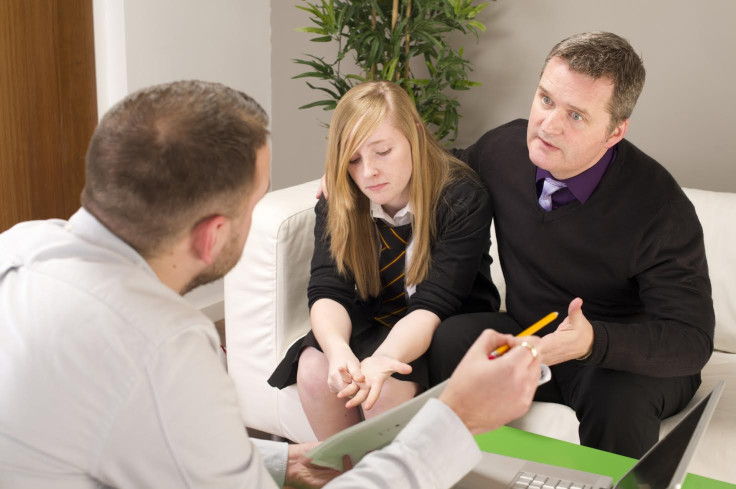Parents are undermining teachers' authority – and it's causing havoc in schools
Parents telling off teachers for sending their children home from school sends mixed messages about authority.

I am often astonished by the vitriol and sarcasm that is directed at teachers when their attempts to enforce standards at school go awry. This week's reports of the outbreak of a 'disturbance' outside Hartsdown Academy in Margate – after 60 children were sent home on the first day of their school for not wearing the right uniform – were typically followed by words of condemnation from the parents. Frustrated parents let rip at the headmaster, accusing him of behaving like the Gestapo. The implication of their invective was that the new headmaster was not up to the job and had lost the respect of many of the parents.
This incident highlights the difficulty that many teachers face in their attempt to create a stable learning environment. One of the most disturbing developments in British schools is that teachers' authority is continually tested not just by pupils but also by their parents.
There was a time when the problem of discipline was confined to relatively low-grade disruptions by switched off pupils or to spirited young kids getting into a fight with another. Now and again the odd 'troublemaker' really did cause a disturbance but they tended to be relatively isolated incidents. That was then.
What has changed in recent times is that the issue of discipline is frequently perceived as a direct threat to teachers themselves. Claims by teachers' unions that their members have been teased, abused and even physically attacked highlight the insecure status of some members of the profession.
Probably the most striking manifestation of the helplessness of some teachers is that in some cases the exercising of authority over even infants has proved too challenging. As a result we now live in a world where children as young as 4 and 5 – thankfully still a relatively small number – are suspended from school for physical or verbal assault.
An even more disturbing trend reported by teachers' unions are instances of physical attacks and abuse directed at teachers by parents. Bad Form: Behaviour in Schools, a report recently published by the trade-union UNISON, indicated that parents were responsible for almost a third (31%) of the abuse directed at teaching/classroom assistants.
Having to deal with recalcitrant children is bad enough but the consequences of outbursts of parental frustration and aggression in schools are far worse. Such mindless behaviour encourages children to adopt anti-social behaviour in general and not just in schools. It also forces teachers on the defensive and seriously undermines the standing and authority of the teaching profession.
Often, when I talk to teachers about classroom discipline the conversation inevitably turns towards the behaviour of parents. One Kent primary school teacher, who told me that she was 'bailing out of teaching', claimed that she was fed up with constantly worrying about classroom disruption. She, like her colleagues, assert that behavioural problems kick in at a very early stage of children's schooling. They insist that they simply lack the resources to maintain classroom discipline when confronted with a willful 'troublemaker'. When I respond with incredulity and observe that historically teachers had little difficulty in exercising authority over six or seven year-old kids, I am told that 'the real problem is the parent'.
Consequently, in some cases the behavioural issues facing teachers are not those of their pupils but also of their parents. Earlier this year it was reported that a headteacher was forced to asks parents to stop wearing pyjamas when taking their kids into school. 'I have noticed there has been an increasing tendency for parents to escort children to and from school while still wearing their pyjamas and, on occasion, even slippers' wrote Kate Chisholm, the headteacher at Skerne Park Academy.
Many parents responded to this incident by claiming that they had very busy lives and that in case it wasn't the headteacher's business how they dressed. The point they overlooked was that their casual attitude towards their appearance unwittingly encouraged children not to take their appearance seriously in school.
Not surprisingly headteachers and their staff feel defensive to the point that they actually expect their attempts to maintain control over their pupils to be criticised. The reaction to the decision by the Margate headmaster to send home 60 pupils for not wearing the appropriate uniform illustrates the challenges that educators face in their attempt to toe the line.
Whatever the rights and wrongs of the school's attempt to make such a disciplinary statement on the first day of school, the response of the media and of some of the parents was thoughtless and irresponsible. A group of irate parents attacked the headmaster for acting like a dictator and sections of the media uncritically and sympathetically reported the story as yet an example of an over-the-top enforcement of a rigid rules.
Yet, what this incident in Margate shows is the unwillingness of the adult world in general to share responsibility for the socialisation of young people. Instead of ensuring that their children take the authority of their teachers seriously, far too many parents are complicit –usually unwittingly – in undermining it. When parents let rip at their children's school and openly criticise a teacher, they send out a signal to their kids that disrespecting educators is OK.
Frank Furedi is emeritus professor of sociology at the University of Kent
© Copyright IBTimes 2025. All rights reserved.






















